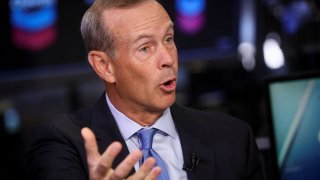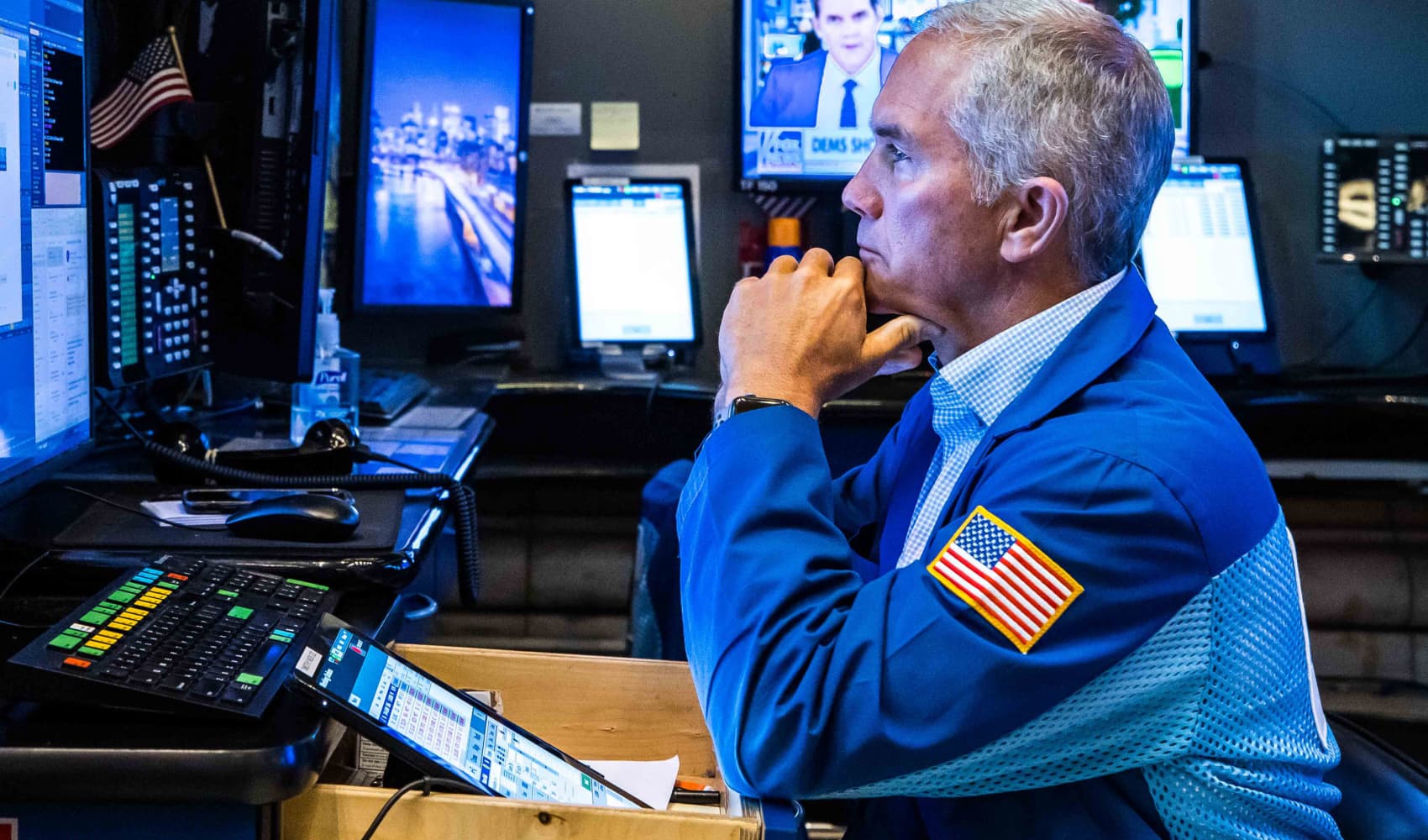
The price of oil has tumbled below $100 per barrel as recession fears mount, raising concerns around demand for crude. But Chevron CEO Michael Wirth said the downturn could be fleeting.
"The tightness in supply hasn't gone away," he said Wednesday at CNBC's Evolve Global Summit. "I think it's great for the economy that prices have moderated, but I also see the risks remaining skewed towards the upside."
Russia's invasion of Ukraine at the end of February upended global energy markets. West Texas Intermediate crude futures, the U.S. oil benchmark, traded above $130 per barrel in March — a price last seen in 2008.
We're making it easier for you to find stories that matter with our new newsletter — The 4Front. Sign up here and get news that is important for you to your inbox.
The surge boosted gasoline, with the national average for a gallon of regular gas topping $5 in June for the first time on record.
Rapidly rising fuel costs have been a major factor driving inflation, which is running at the hottest pace in more than 40 years.
Wirth said some of the recent weakness in oil is also due to demand destruction from high prices. The demand side of the equation can have a more immediate response, but longer-term supply remains tight.
Money Report
"Now the real challenge for the globe, I think, is to see the investment in supply ... as we come through whatever form of economic slowdown we see what the supplies are to support growth going forward," he said.
Wirth pointed to several factors that could lead to a resurgence in demand, including China reopening fully following a spike in Covid cases. Additionally, global energy markets are being reordered following Western nations slapping sanctions on Russian energy.
While oil prices have pulled back, WTI is still up nearly 30% for 2022. The national average for a gallon of gas stood at $4.63 on Wednesday, according to AAA, which is below record levels but still $1.49 more expensive than this time last year.
The surge in prices at the pump has become a headache for the Biden administration ahead of the upcoming midterm elections.
President Joe Biden has repeatedly called on the industry — both domestic and foreign producers — to raise output. Later this week he will meet with officials from Saudi Arabia, the de facto leader of OPEC.
Biden sent a letter to a number of oil executives, including Wirth, in June calling on them to increase refining capacity.
Chevron responded with a letter of its own, saying the administration has "largely sought to criticize, and at times vilify, our industry."
Wirth said Wednesday that his company is working with the U.S. government.
"What we need to see is policy that encourages responsible development of all types of energy resources here and policy that recognizes we need a pragmatic balance between economic prosperity, energy security, and environmental protection," he said.
Wirth added that a dialogue is underway with administration officials over the near-term energy situation.
The industry has also been accused of price gouging at the pump. But Wirth said Chevron owns fewer than 5% of the stations that carry its brand. He said he's unsure the president "fully appreciated the nature of the market" and the people operating the service stations.
The White House did not immediately respond to a request for comment.
The industry has also been criticized for raising shareholder payout through dividends and buybacks, rather than putting that money into bringing more supply online.
But Wirth said the industry can both raise output while also rewarding shareholders.
"We can do it all. We can grow production … we can invest to deliver more energy to the market, and we can be responsible and return cash to our shareholders at the same time. I think that's what a good company does," he said.






